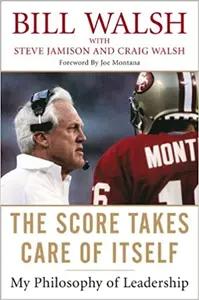How Not To Be Wrong: The Power of Mathematical Thinking
By Jordan Ellenberg
Category
ScienceRecommended by
"How Not to Be Wrong" by Jordan Ellenberg is a fascinating and illuminating book that challenges the conventional view of mathematics as an abstract and detached discipline.
Ellenberg introduces us to the power and importance of mathematics in our everyday lives, demonstrating that it is not just for the experts. Through engaging examples and anecdotes, he unveils how mathematics can be applied to enhance our decision-making and clarify our understanding of the world.
The author beautifully explores the concept of thinking mathematically, emphasizing its relevance in fields such as politics, medicine, and finance. He explains how mathematical thinking can help us avoid common pitfalls, such as reasoning errors and misunderstanding statistical data.
With clarity and wit, Ellenberg encourages readers to embrace uncertainty and recognize the limitations of their own assumptions. He shows us how to detect flawed arguments and faulty logic, empowering us to make better-informed choices in a world saturated with misinformation and spin.
From exploring the hidden math behind voting systems to unraveling the mysteries of conditional probability, "How Not to Be Wrong" pushes us to think critically and question our assumptions. It presents mathematical concepts in an accessible manner, ensuring that even those apprehensive about the subject can appreciate its value in gaining deeper insights about the world around us.
In this thought-provoking and eloquent book, Jordan Ellenberg demonstrates that math is not solely a subject for mathematicians but a powerful tool that can help us navigate through life's uncertainties and make wise decisions. A must-read for anyone seeking to sharpen their thinking and avoid common mistakes, "How Not to Be Wrong" is a compelling tribute to the profound impact of mathematics in our daily lives.
Ellenberg introduces us to the power and importance of mathematics in our everyday lives, demonstrating that it is not just for the experts. Through engaging examples and anecdotes, he unveils how mathematics can be applied to enhance our decision-making and clarify our understanding of the world.
The author beautifully explores the concept of thinking mathematically, emphasizing its relevance in fields such as politics, medicine, and finance. He explains how mathematical thinking can help us avoid common pitfalls, such as reasoning errors and misunderstanding statistical data.
With clarity and wit, Ellenberg encourages readers to embrace uncertainty and recognize the limitations of their own assumptions. He shows us how to detect flawed arguments and faulty logic, empowering us to make better-informed choices in a world saturated with misinformation and spin.
From exploring the hidden math behind voting systems to unraveling the mysteries of conditional probability, "How Not to Be Wrong" pushes us to think critically and question our assumptions. It presents mathematical concepts in an accessible manner, ensuring that even those apprehensive about the subject can appreciate its value in gaining deeper insights about the world around us.
In this thought-provoking and eloquent book, Jordan Ellenberg demonstrates that math is not solely a subject for mathematicians but a powerful tool that can help us navigate through life's uncertainties and make wise decisions. A must-read for anyone seeking to sharpen their thinking and avoid common mistakes, "How Not to Be Wrong" is a compelling tribute to the profound impact of mathematics in our daily lives.
Share This Book 📚
More Books in Science

Scale
Geoffrey West

Einstein
Walter Isaacson

How to Change Your Mind
Michael Pollan

The Checklist Manifesto
Atul Gawande

When Breath Becomes Air
Paul Kalanithi

Behave
Robert Sapolsky

Who We Are and How We Got Here
David Reich

Genome
Matt Ridley

The Beginning Of Infinity
David Deutsch

The Origin of Consciousness in the Breakdown of the Bicameral Mind
Julian Jaynes

The Pleasure of Finding Things Out
Richard P. Feynman

The Selfish Gene
Richard Dawkins

The Structure of Scientific Revolutions
Thomas Kuhn

I Contain Multitudes
Ed Yong

If The Universe Is Teeming With Aliens...Where Is Everybody?
Stephen Webb

Living Within Limits
Garrett Hardin

Moonwalking with Einstein
Joshua Foer

QED
Richard Feynman

Six Easy Pieces
Richard P. Feynman

The Book of Why
Judea Pearl

The Double Helix
James D. Watson Ph.D.

The Evolution of Everything
Matt Ridley

The Gene
Siddhartha Mukherjee

The God Delusion
Richard Dawkins

The Precipice
Toby Ord

Thing Explainer
Randall Munroe

What Do You Care What Other People Think?
Richard P. Feynman

100 Plus
Sonia Arrison

A Brief History of Time
Stephen Hawking

A Cultural History of Physics
Karoly Simonyi
Popular Books Recommended by Great Minds 📚

The Ride of a Lifetime
Bob Iger

Influence
Robert Cialdini

The Intelligent Investor
Benjamin Graham

1984
George Orwell

The Ascent of Money
Niall Ferguson

The Rational Optimist
Matt Ridley

The Hitchhikers Guide to the Galaxy
Douglas Adams

The Three Body Problem
Cixin Liu

Only the Paranoid Survive
Andy Grove

Against The Gods
Peter Bernstein

Foundation
Isaac Asimov

Zero to One
Peter Thiel

The Network State
Balaji Srinivasan

The Score Takes Care of Itself
Bill Walsh

High Output Management
Andrew Grove

Economics in One Lesson
Henry Hazlitt

7 Powers
Hamilton Helmer

The Outsiders
William Thorndike

Principles for Dealing With The Changing World Order
Ray Dalio

Why We Sleep
Matthew Walker

Homo Deus
Yuval Noah Harari

Skin In The Game
Nassim Taleb

Shoe Dog
Phil Knight

Antifragile
Nassim Nicholas Taleb

Snow Crash
Neal Stephenson

Thinking, Fast and Slow
Daniel Kahneman

Wanting
Luke Burgis

The Courage To Be Disliked
Ichiro Kishimi

Lying
Sam Harris

The Great CEO Within
Matt Mochary
